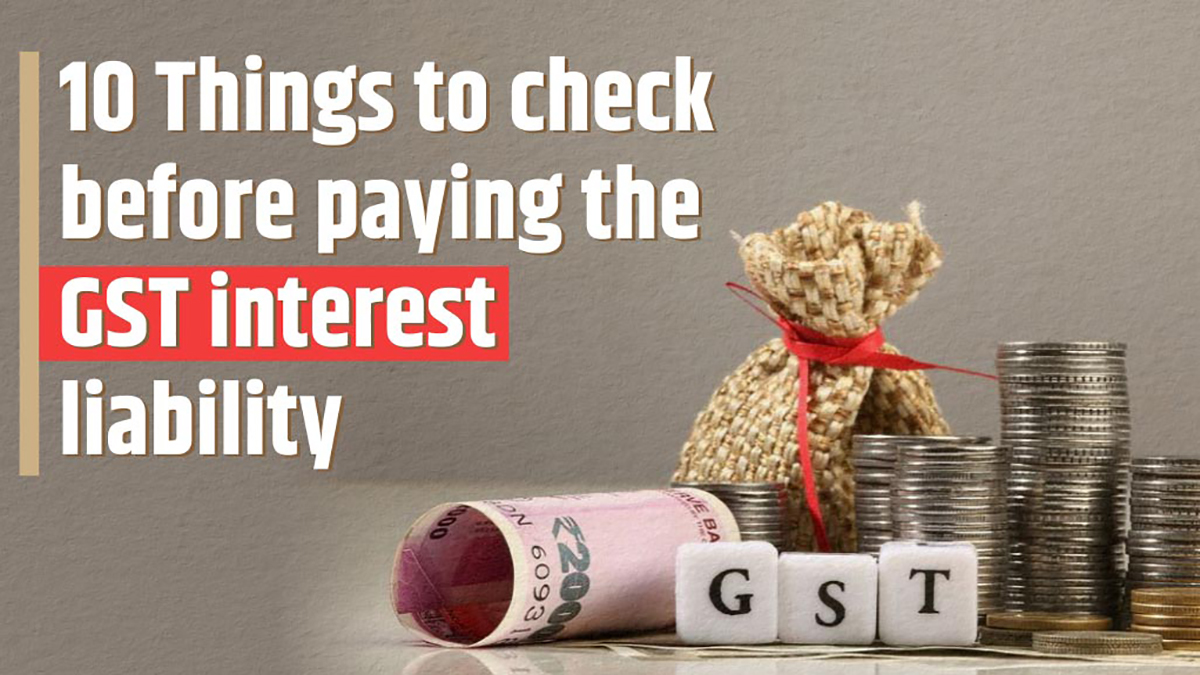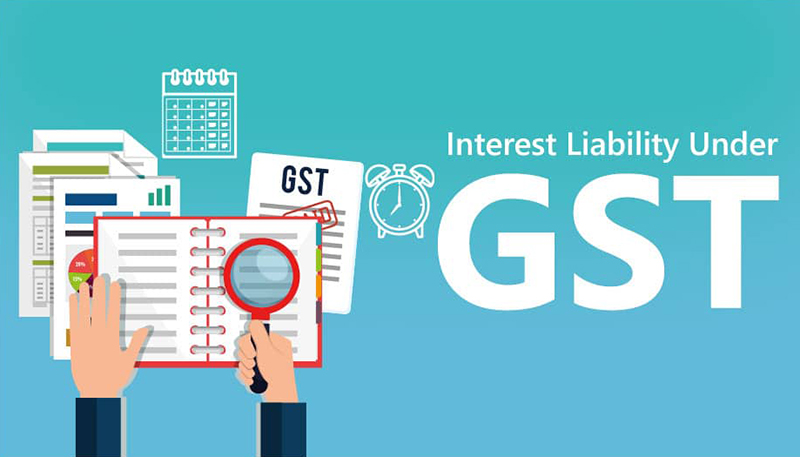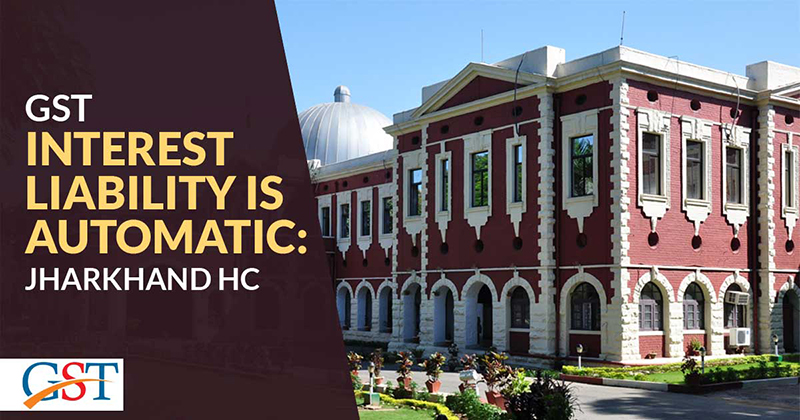
Businesses and individuals must file their GST returns on time and pay their tax obligations within the prescribed timelines. Taxpayers must pay interest on the outstanding amount in case of late payment. However, several factors must be considered before paying the GST interest debt.
This article outlines ten key considerations businesses should consider to ensure the correct payment of their GST interest and avoid a potential overpayment or underpayment of tax levies.
Section 50 subsection (1) of the CGST Act 2017 ― Interest Under GST
As per the section, interest accrues on late GST payments. The Government of India has set specific payment deadlines for various categories of taxpayers under the Goods and Services Tax (GST) law. If GST is not paid within the prescribed period, interest becomes payable on the outstanding amount for the delay period.
What Factors Trigger Interest Charges in GST?
Under the provisions of section 50 of CGST Act 2017, interest shall be charged on GST in the following circumstances:
- Late Payment: If the taxpayer fails to pay the GST within the prescribed due date, interest will be charged on the outstanding amount.
- Incorrect/insufficient payment: If the taxpayer short pays the GST, interest will be due on the shortfall.
- Reversal of input tax credits (ITC): If the taxpayer overclaims input tax credits or fails to reverse the ITC as required by law, interest will be charged on the amount of ITC to be reversed.
- ITC reversal for non-payment: if the taxpayer fails to pay the supplier within six months, the ITC previously availed has to be reversed by the 180th day from the date of invoice, if there is delay in such reversal than interest will accrue from the date of availment till the date of actual reversal.
Interest Charges for Late Tax Payments under GST
Taxpayers must pay a yearly interest rate of 18% if they fail to pay GST or reverse ITC on time on a per diem basis.
Earlier as per section 50(3) higher interest rate of 24% was applicable on ITC availed which was not available in the GSTR 2A, said provision has been amended retrospectively to seek interest @ 18% w.e.f. 1.07.2017 onwards.

10 Key Considerations Before Settling GST Interest Liability
- Assess Extension of GST filing Return Deadline:
Check to see if the deadline for filing the GST return has been extended to account for factors such as the pandemic COVID or regional circumstances, as CBIC often adjusts these dates.
- Review Stated Interest Rate:
Check the interest rate mentioned in the letter you receive from department. While the standard interest rate is 18%, CBIC may offer exceptions or reduced rates during certain periods, especially during the pandemic. Make sure the interest is calculated correctly before making the final payment.
- Validate Filed Return Dates:
Verify that the filing dates in the letter are correct. Verify that you filed the tax returns by the prescribed deadline.
- Determine Interest on Net Liability:
Confirm whether the interest payable is based on the net liability (Gross Output tax liability less ITC balance) and not the gross liability by the provisions of section 50(1) of the CGST Act 2017.
- Review CGST/SGST Payment and Electronic Credit Ledger Balances:
Check if CGST or SGST payments were made while a balance was in the corresponding electronic credit ledger. You should explain the situation concerning the relevant statutory provision if there were an erroneous offset. If there are valid reasons, the authority may excuse the delay.
- Assess Interest on Irregular Trans Credit Claims:
The claim does not accrue interest until the Trans Credit is claimed. Therefore, check whether the authorities charge interest on such claims.
- Clarify Calculation Basis:
Confirm whether the interest calculation is based on the number of days in arrears or the entire period on monthly or yearly basis..
- Verify Applicable Law:
Verify that the interest is actually and legally payable before committing to pay the same.
- Inspect Portal Issues:
If technical problems with the GST portal caused the delay despite timely tax payment, you may write in to your jurisdictional officer putting across the evidences of technical glitches faced and seek relief.
- Review Any Previous Correspondence or Communication:
Consider any previous correspondence or communication with the tax authorities regarding the GST interest debt.

Important Case Law: Jharkhand High Court’s Ruling on GST Interest Liability and Adjudication.
In a case in the Jharkhand High Court, a ruling was given that under Section 50 GST, interest liability cannot be enforced without initiating appropriate adjudication proceedings in response to a taxpayer’s objection. (Union of India v. Narsingh Ispat Limited)
Jharkhand High Court clarified that the interest under Section 50 of the Central Goods and Services Tax Act, 2017 is not an immediate liability but a computation that can be levied only after the adjudication process. The case attracted attention when a petitioner who had put on record GSTR-3 B approached the High Court after receiving a letter from the tax authorities claiming interest for the late filing of the GSTR-3B returns of Feb and March 2018.
The Jharkhand High Court considered the letter of the GST authorities invalid and held that while the interest liability is automatic, it should be adjudicated in case of a dispute. Under the CGST Act, the amount of interest can only be considered payable once the relevant authorities have completed adjudication proceedings under Section 73 or 74 of the Act.
This case is an important precedent that underscores that interest liability under the GST should follow due process and cannot be arbitrarily imposed without addressing the taxpayer’s concerns. It underscores the importance of initiating court proceedings to determine the validity and amount of interest payable.
In summary
As a tax service provider specializing in GST filing and financial management for businesses, we understand the importance of paying the GST interest obligation correctly. Our comprehensive approach ensures compliance with GST laws and helps businesses avoid penalties.
By implementing the ten key aspects discussed in this article, our clients can determine and pay the correct amount of GST interest liability, freeing them from undue financial burdens. In addition, we stay abreast of the latest GST regulations and provide professional guidance to companies to make GST compliance seamless and worry-free.
